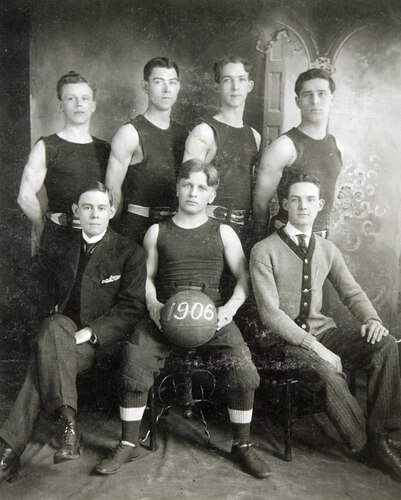 If you’ve read any of my blog entries for The Persimmon Group (TPG), you know that I’m a hardcore Dallas Mavericks fan, a true blue MFFL (Mavs Fan For Life). Tulsa is my adopted home, though, and much of my work at TPG is in Oklahoma City, so I throw some of my support to the Thunder. That’s why I was so interested in the recent article by Nick Gallo, Thunder Basketball Writer, discussing Billy Donovan’s basketball philosophy.
If you’ve read any of my blog entries for The Persimmon Group (TPG), you know that I’m a hardcore Dallas Mavericks fan, a true blue MFFL (Mavs Fan For Life). Tulsa is my adopted home, though, and much of my work at TPG is in Oklahoma City, so I throw some of my support to the Thunder. That’s why I was so interested in the recent article by Nick Gallo, Thunder Basketball Writer, discussing Billy Donovan’s basketball philosophy.
For those that may not know, Donovan coached at the University of Florida, where he won consecutive national championships in 2006 and 2007, and was hired by OKC to replace former head coach Scott Brooks. As I was reading Gallo’s article, it struck me how much public sector leaders could learn from studying Donovan’s approach to coaching. For example, developing relationships is one of his top priorities, and he knows that, to achieve his vision (primarily ball and player movement) the team has to buy in. What Gallo described as a “belief in a shared ownership” is apparent in Donovan’s effort to foster collaboration and communication with his team.
As public sector executives, one of our responsibilities is to establish cooperative relationships with various constituencies, including fellow employees, elected officials, citizens, civic groups, and the local business community. Doing so creates trust, inspires confidence, and can help avoid problems along the way.
Another great example is Donovan’s plan to leverage the strengths of his roster on both ends of the court. Each player has physical differences (size, speed, quickness, and overall athleticism to name a few) and Donovan believes they can, as Gallo puts it, “wreak havoc on opposing offenses” and create mismatches when trying to put points on the board. It is our duty as public sector leaders to put employees in the best position to succeed by taking advantage of each individual’s skills. This is most apparent when employees of one discipline are asked to take on a leadership position in another. While they may not have the industry-specific experience generally associated with the role (i.e. public works, parks and recreation, information technology, human resources, planning/economic development, etc.) their proven abilities as an effective manager and administrator often lead to success in a whole new capacity.
My personal favorite was Gallo’s note that Donovan intends to let his “floor generals initiate offense without calling a set when possible.” In our terms, this means avoiding micromanagement and instead giving our employees the freedom to make the decisions they know to be in the best interest of the organizations we serve. In addition to creating the “shared ownership” mentioned above, this can also lead to a more innovative culture (since we describe less how to do something and more what the desired goals and end results should be).
There have been numerous studies on different coaches’ approaches to leadership and their applicability to the business world. In fact, one of our speakers at TPG has done several sessions on this very topic. If Donovan has the success in OKC that many are predicting, his style will be another to add to the list. Maybe one day, Mark Cuban will decide that this holds true in reverse, and he’ll call me up to lead the Mavs (after, of course, Coach Carlisle wins a few consecutive championships and decides to retire in route to the hall of fame).



